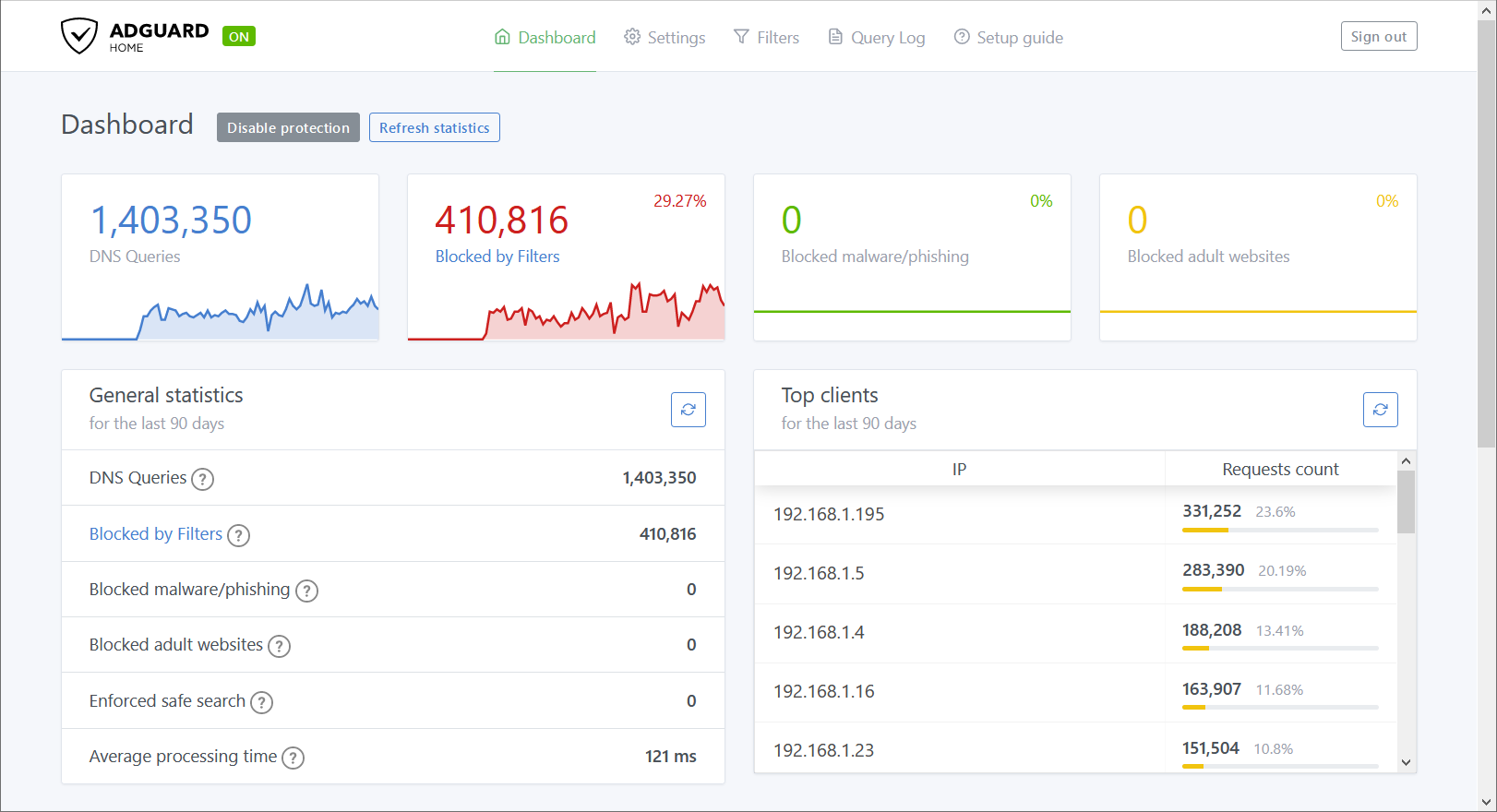 AdGuard Home version 0.107.49 has been released. With this software, a DNS server can be set up at home to block advertisements and malware on the entire network, so that this is no longer necessary on each individual device. It is therefore comparable to Pi-hole. AdGuard Home works on a machine with Windows, macOS, Linux or FreeBSD, is also able to protect against phishing and has parental control. The program can be discussed on our own forum. The following changes and improvements have been made in this release:
AdGuard Home version 0.107.49 has been released. With this software, a DNS server can be set up at home to block advertisements and malware on the entire network, so that this is no longer necessary on each individual device. It is therefore comparable to Pi-hole. AdGuard Home works on a machine with Windows, macOS, Linux or FreeBSD, is also able to protect against phishing and has parental control. The program can be discussed on our own forum. The following changes and improvements have been made in this release:
Security
- Go version has been updated to prevent the possibility of exploiting the Go vulnerabilities fixed in Go 1.22 .3.
Added
- Support for comments in the ipset file (#5345).
Changed< /strong>
- Private rDNS resolution now also affects SOA and NS requests (#6882).
- Rewrite rules mechanics were changed due to improved resolving in safe search.
Deprecated
- Currently, AdGuard Home skips persistent clients that have duplicate fields when reading them from the configuration file. This behavior is deprecated and will cause errors on startup in a future release.
Fixed
- Acceptance of duplicate UIDs for persistent clients at startup. See also the section on client settings on the Wiki page.
- Domain specifications for top-level domains not considered for requests to unqualified domains (#6744).
- Support for link-local subnets, i.e. fe80::/16, as client identifiers (#6312).
- Issues with QUIC and HTTP/3 upstreams on older Linux kernel versions (#6422).
- YouTube restricted mode is not enforced by HTTPS queries on Firefox.
- Support for link-local subnets, i.e. fe80::/16, in the access settings (#6192).
- The ability to apply an invalid configuration for private RDNS, which led to server inoperability.
- Ignoring query log for clients with ClientID set (#5812).
- Subdomains of in-addr.arpa and ip6.arpa containing zero-length prefix incorrectly considered invalid when specified for private RDNS upstream servers (#6854).
- Unspecified IP addresses aren't checked when using “Fastest IP address” mode (#6875).

Leave a Reply
You must be logged in to post a comment.